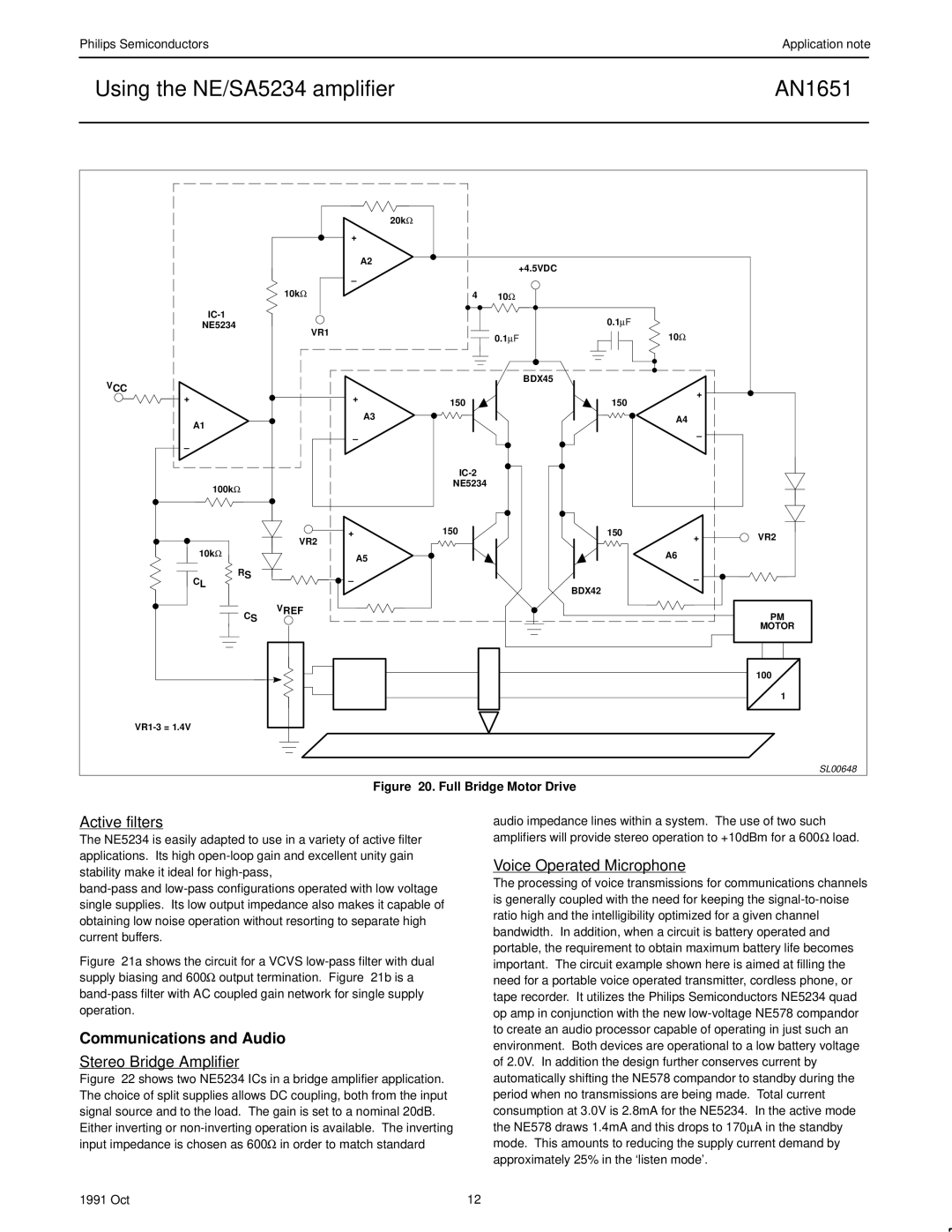AN1651 specifications
The Philips AN1651 is a highly regarded car audio speaker offering an impressive balance of sound quality and performance. Designed primarily for the car audio enthusiast, this model showcases what modern engineering can achieve in automotive sound systems.One of the main features of the AN1651 is its dual cone structure that produces clear and rich sound across various frequencies. This design aims to enhance both low and mid-range sounds, ensuring that music is delivered with clarity and precision. Whether you're listening to rock, pop, or classical, the AN1651 is built to convey the nuances of music effectively.
The speaker boasts a peak power handling capability of up to 240 watts, which allows for immersive sound experiences without distortion, even at higher volumes. This capability means that the AN1651 can handle the punchy bass lines typical in many contemporary music genres, making it a popular choice among bass enthusiasts.
Philips also incorporates their innovative technologies, such as a reinforced polypropylene cone. This material enhances sound quality by providing better rigidity while remaining lightweight. The result is a responsive speaker with reduced resonance, contributing to more accurate audio playback. Furthermore, the butyl rubber surround is designed to withstand wear and tear, ensuring durability and longevity in automotive conditions.
The AN1651 also features a sensitivity rating of 91 dB, allowing it to produce powerful sound output even with moderate power input. This feature makes it an ideal choice for vehicles with smaller amplifiers or factory stereo units, as it ensures an enjoyable listening experience without requiring significant upgrades.
In terms of installation, the AN1651 is designed for versatility. Its size makes it compatible with a wide range of vehicles, and the mounting accessories included facilitate an easy and secure fit.
With a smart aesthetic that blends well with various car interiors, the Philips AN1651 speaker is more than just a functional audio component; it is a stylish addition to your vehicle.
In conclusion, the Philips AN1651 combines advanced technologies and thoughtful design to deliver a rich audio experience that car enthusiasts will appreciate. Whether for casual listening or serious audio enjoyment, this speaker meets diverse audio needs, proving to be a valuable investment for any car audio system.

